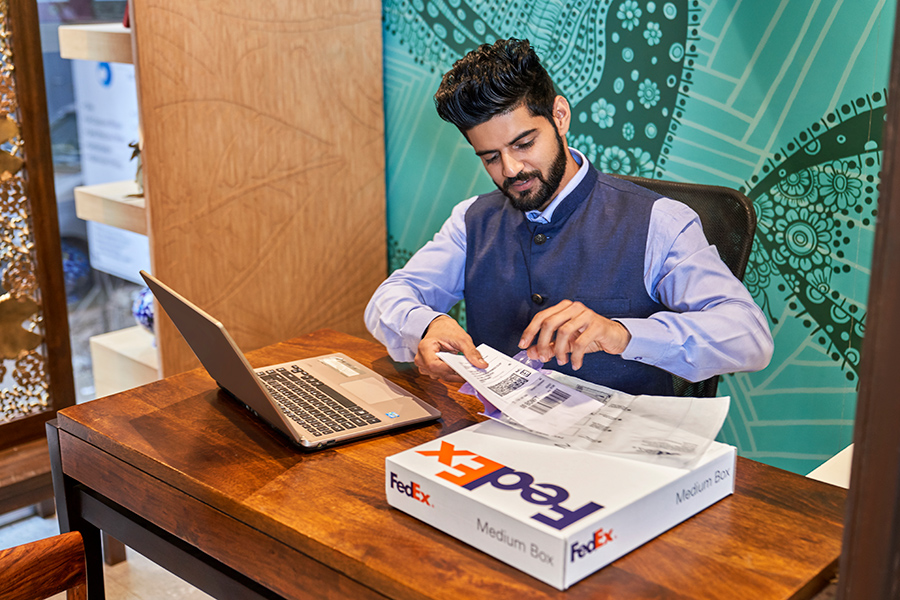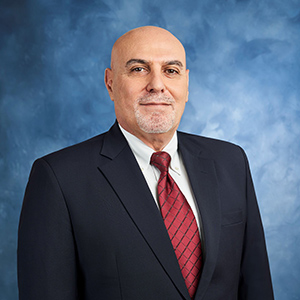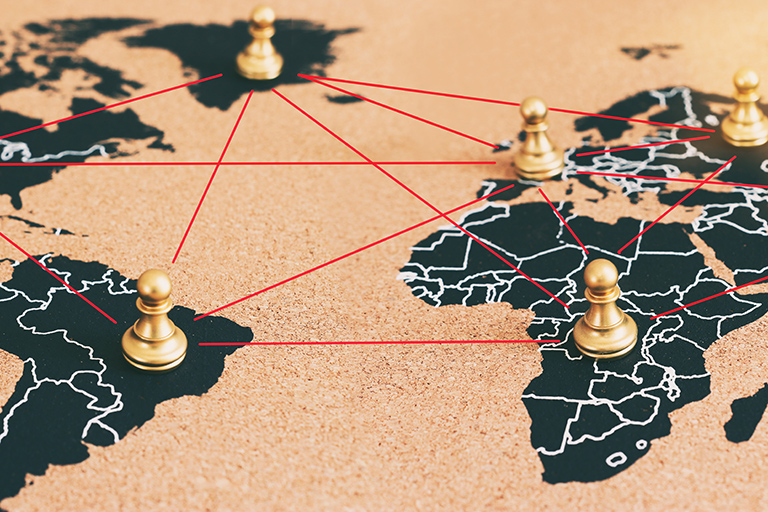Why The Time Is Now For India’s ESG Transformation
Stepping up on ESG actions and commitments can be good for society and the balance sheet – particularly in a country with one of the world’s largest populations.
There is a paradigm shift in the way companies are operating around the world – doing business is now more than just offering a service or a product to earn profit. The majority of a company’s value can be reflected in the intangible aspects of its business, relating to factors such as innovation, culture, trust, human capital, sustainability and governance.
As companies like FedEx play a larger role in society, there is an increased awareness of how business and society co-exist. It’s challenging everyone to aspire to a higher purpose and make their values known. Success today isn’t measured solely by how much profit a business makes, but also by how environmentally responsible it is, how it gives back to society, and how ethically and transparently it operates.
ESG has transformed how we do business
This evolution in doing business, while present in many forms for some years, has been distilled into a measurable framework based on three pillars - environmental, social, and governance or ‘ESG’. ESG frameworks measure just how much a company is actually ‘walking the talk’ and how ESG influences their investments, purchase decisions, and future growth.
As companies like FedEx play a larger role in society, there is an increased awareness of how business and society co-exist. It’s challenging everyone to aspire to a higher purpose and make their values known. Success today isn’t measured solely by how much profit a business makes, but also by how environmentally responsible it is, how it gives back to society, and how ethically and transparently it operates.
ESG has transformed how we do business
This evolution in doing business, while present in many forms for some years, has been distilled into a measurable framework based on three pillars - environmental, social, and governance or ‘ESG’. ESG frameworks measure just how much a company is actually ‘walking the talk’ and how ESG influences their investments, purchase decisions, and future growth.

ESG frameworks are rapidly gaining importance in India. Consumers, investors, and regulators are increasingly holding companies accountable not just for how much business they do, but for how they do it. According to analysts from Motilal Oswal Financial Services, November 2021 saw ESG-related investments jump fourfold to Rs 123 billion, up from Rs. 26.3 billion in November 2019
Faced with this shift, companies are stepping up.
But can global ESG principles apply to India, a country that presents unique opportunities among a myriad of challenges? Can global ESG practices influence meaningful change in the Indian context?
India presents complexity but opportunity too
Some global ESG practices can certainly be replicated in India. For instance, the country is making a big push towards renewable energy and electric vehicles (EVs) in its bid to become carbon neutral by 2070, a common goal in many parts of the world. The Securities and Exchange Board of India (SEBI) also launched a public debate on how ESG ratings should be calculated and monitored. This open and collaborative approach is precisely what’s needed for a genuine correlation between ESG commitments, transparency, and – ultimately – shareholder return.
Initiatives like electrifying fleets, increasing the proportion of renewable sources in the energy mix, setting up charging stations at office premises are all activities that can be replicated in India. At FedEx, we are stepping up our commitment to a more sustainable India by testing electric vehicles here, beginning with Bangalore.
Faced with this shift, companies are stepping up.
But can global ESG principles apply to India, a country that presents unique opportunities among a myriad of challenges? Can global ESG practices influence meaningful change in the Indian context?
India presents complexity but opportunity too
Some global ESG practices can certainly be replicated in India. For instance, the country is making a big push towards renewable energy and electric vehicles (EVs) in its bid to become carbon neutral by 2070, a common goal in many parts of the world. The Securities and Exchange Board of India (SEBI) also launched a public debate on how ESG ratings should be calculated and monitored. This open and collaborative approach is precisely what’s needed for a genuine correlation between ESG commitments, transparency, and – ultimately – shareholder return.
Initiatives like electrifying fleets, increasing the proportion of renewable sources in the energy mix, setting up charging stations at office premises are all activities that can be replicated in India. At FedEx, we are stepping up our commitment to a more sustainable India by testing electric vehicles here, beginning with Bangalore.

India is a culturally vibrant, diverse country and is transitioning from agrarian to an industrialized economy – holding the opportunity to become a green economy. Here, corporations both Indian and multinational play a critical role in creating and adapting ESG goals to the Indian ecosystem.
For instance, the global FedEx Priority Earth Grant Program that seeks sustainable projects around the world directed US$50,000 towards preserving Mumbai’s mangroves and cleaning up its beaches. This is an example of how a global ESG practice can address specific issues local to India, in this case Mumbai.
Working towards empowerment and equality for all Indian citizens
Similarly, on the diversity front, FedEx has refocused empowerment initiatives to specifically address the challenges faced by women in India, with actions to address diversity and engagement in the workplace and invest in community programs that support women. FedEx applied the company’s commitment to the UN Women’s Empowerment Principles to the Indian context to address needs of women in India relevant to their situation.
The governance pillar of the ESG framework could be led by local needs such as India’s transition from an agrarian to an industrialized country and the unique challenges this presents. They may also take into consideration the country’s thriving micro, small and medium enterprises (MSMEs). These businesses are the largest employers in the nation. With over 60 million MSMEs across India, they are the foundation of the Indian economy.
For instance, the global FedEx Priority Earth Grant Program that seeks sustainable projects around the world directed US$50,000 towards preserving Mumbai’s mangroves and cleaning up its beaches. This is an example of how a global ESG practice can address specific issues local to India, in this case Mumbai.
Working towards empowerment and equality for all Indian citizens
Similarly, on the diversity front, FedEx has refocused empowerment initiatives to specifically address the challenges faced by women in India, with actions to address diversity and engagement in the workplace and invest in community programs that support women. FedEx applied the company’s commitment to the UN Women’s Empowerment Principles to the Indian context to address needs of women in India relevant to their situation.
The governance pillar of the ESG framework could be led by local needs such as India’s transition from an agrarian to an industrialized country and the unique challenges this presents. They may also take into consideration the country’s thriving micro, small and medium enterprises (MSMEs). These businesses are the largest employers in the nation. With over 60 million MSMEs across India, they are the foundation of the Indian economy.

Committing to sustainable and empathy-driven business practices
Businesses looking to hire and retain the best talent need to show current and potential employees how they are engaging with the world around them, through sustainable business practices, and direct action in the communities where they live and work.
According to Porter Novelli, 88% of employees today say working for a company with a strong purpose is more important to them than ever before, while data from the Mahindra Group suggests that nearly half of Indians surveyed believe that equal opportunity, flexible working practices, commitments to diversity, and an innovative environment are the top qualities of a ‘good’ employer.
For companies looking to attract and retain talent, having a clear ESG strategy in place and communicating it to potential employees can make the search and recruitment process far more effective.
India - a land rich with opportunity – is future-ready. In the FedEx Future is Now study, 75% of Indians agreed that individuals and communities who have a ‘futuristic’ outlook are more likely to be environmentally conscious than those who don’t. 71% believe that, as decision-makers in a futuristic business, sustainability would be their top priority. An ESG framework with achievable goals and actions for all participants can help position the country in the global stewardship role it is poised to take.
As we look to the future of Indian businesses, and a future that will support growth and new opportunities in the global arena, ESG and business performance are becoming mutually dependent. To learn more about how FedEx is enabling ESG framework, check out our 2022 ESG Report.
Businesses looking to hire and retain the best talent need to show current and potential employees how they are engaging with the world around them, through sustainable business practices, and direct action in the communities where they live and work.
According to Porter Novelli, 88% of employees today say working for a company with a strong purpose is more important to them than ever before, while data from the Mahindra Group suggests that nearly half of Indians surveyed believe that equal opportunity, flexible working practices, commitments to diversity, and an innovative environment are the top qualities of a ‘good’ employer.
For companies looking to attract and retain talent, having a clear ESG strategy in place and communicating it to potential employees can make the search and recruitment process far more effective.
India - a land rich with opportunity – is future-ready. In the FedEx Future is Now study, 75% of Indians agreed that individuals and communities who have a ‘futuristic’ outlook are more likely to be environmentally conscious than those who don’t. 71% believe that, as decision-makers in a futuristic business, sustainability would be their top priority. An ESG framework with achievable goals and actions for all participants can help position the country in the global stewardship role it is poised to take.
As we look to the future of Indian businesses, and a future that will support growth and new opportunities in the global arena, ESG and business performance are becoming mutually dependent. To learn more about how FedEx is enabling ESG framework, check out our 2022 ESG Report.
***



















 The Latest
The Latest